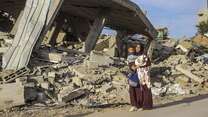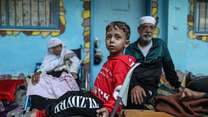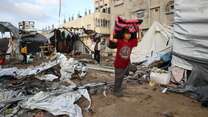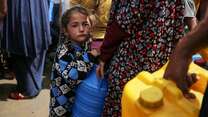The ongoing conflict, including fighting, airstrikes and siege are having a devastating impact on civilians and civilian infrastructure in Gaza, and the humanitarian situation is getting direr every day. Severe restrictions on humanitarian aid delivery mean essential items needed for survival, such as medical supplies, food and clean water are not getting into Gaza at the levels required.
The IRC is calling for all parties to agree to an immediate and lasting ceasefire as envisaged by UN Security Council Resolution 2735. A ceasefire is the only way to fully protect Palestinian lives, secure the release of hostages taken from Israel by Hamas and other armed groups, and safely scale-up humanitarian assistance and service delivery. While fighting continues, all parties must adhere to international humanitarian law which demands protecting civilians and the infrastructure they depend on to survive. The IRC is also calling for a humanitarian reset to deliver an immediate and significant scale up of humanitarian aid. This includes immediate action to: Open all land border crossings to goods and personnel; streamline inspection processes and list of permitted supplies; facilitate eased entry of humanitarian and healthcare staff; ensure safe movement for all humanitarian and healthcare workers and fully reinstate critical services like water, power, and fuel supplies.
Israel’s assault on the Gaza Strip, as of 12 November 2024, has killed more than 43,665 Palestinians and injured 103,076, with tens of thousands still missing. Around 80% of Gaza is under forced displacement orders and 90% of the population are displaced, most multiple times in the last year.
On 13 October, US Secretary of State, Antony Blinken and US Secretary of Defense Lloyd Austin, sent a letter containing demands to Israeli officials to improve the humanitarian situation, or face restrictions on US military aid. As of yet, Israel has failed to meet those demands, which included meeting a minimum of 350 trucks per day, ending the isolation of northern Gaza and removing an agreed list of essential items from the dual-use items list. A scorecard developed by eight humanitarian organisations assesses Israel’s failure to comply with U.S. humanitarian access demands.



